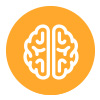Rate this article and enter to win
Anyone who has taken an exam has likely reached into their memory for that moment when the professor explained a crucial point, and found…nothing. That stuff isn’t necessarily there when we need it. But a recent study offers a simple way to avoid this. Briefly replaying a memory in our heads or describing it out loud can fix it in our minds and enable us to recall it later, researchers showed.
Memories can be lost unless they are consolidated, or “fixed,” in the mind. In the study, participants watched 26 video clips, each lasting 40 seconds. For 20 of the clips, participants replayed it in their minds or put it into their own words (again, for 40 seconds). Two weeks later, their ability to recall details in those clips was impressive. But the six videos they did not “rehearse” were largely forgotten, according to the Journal of Neuroscience (2015).

What this means for students
The technique is a valuable learning strategy for students, say the researchers. “The bottom line is that you can’t just assume that you will remember something because you were attending to it,” says Dr. Chris Bird, a senior lecturer in psychology at the University of Sussex, who led the study. “A period of quiet rehearsal by yourself, or alternatively talking through the content with another person, will help ‘fix’ the memory.” Writing it down is also effective. This strategy can be useful in any situation that requires accurate recall; for example, after witnessing an accident or crime.

Caution
Don’t expect 40 seconds of mental review to consolidate your memory of a full lecture. “There was nothing special about 40 seconds of rehearsal. This was simply how long the clips we showed lasted, so we wanted people to have long enough to ‘replay’ the clips to themselves,” says Dr. Bird. “If your lecture lasted an hour, you are going to need a lot longer to rehearse the content.” Or pick out the most salient points and review them as you walk to the dining hall or take a shower.
This type of rehearsing has additional benefits. “In the context of a lecture, it will also help you identify the things you didn’t quite understand first time around, so that you can look them up,” says Dr. Bird.

What’s going on in the brain
When our brain lays down a new memory, a region called the posterior cingulate is active. When we revisit that memory, the same brain region activates again. In this study, researchers scanned the participants’ brains. The more their brain activity synced when watching the videos and rehearsing the memories, the more they were able to recall later.
The study was a collaboration between the University of Sussex and University College London, UK.





























